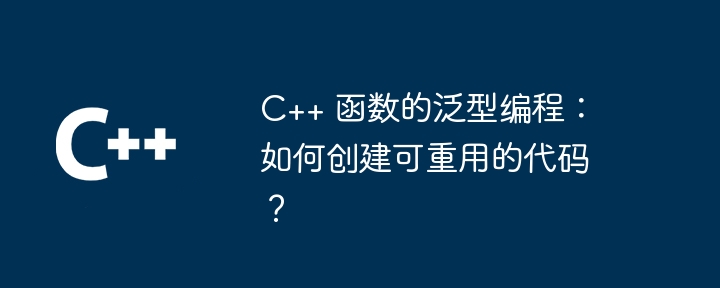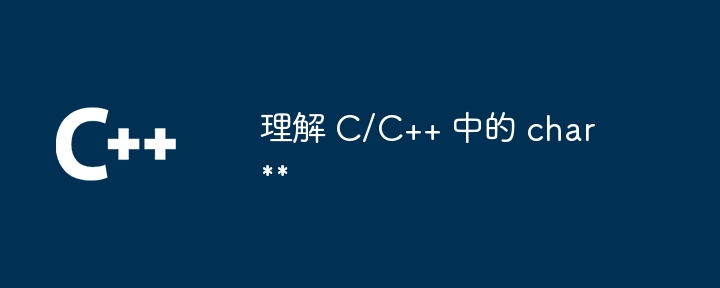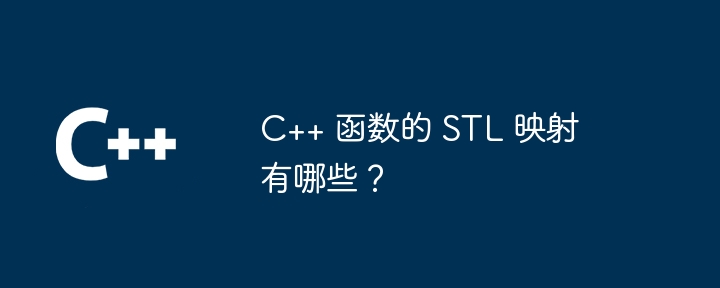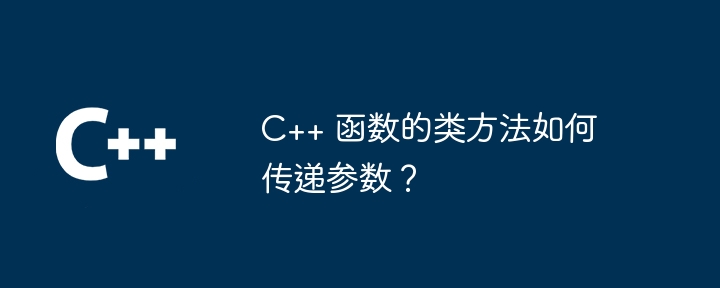泛型编程是一种创建可重用代码的技术,允许您编写适用于多种数据类型而无需重复代码的函数。在 c++++ 中,可以使用模板来实现泛型编程:模板函数:模板函数的声明类似于普通函数,但它有一个或多个类型参数,列在函数名前尖括号中。使用模板函数:要使用模板函数,只需提供相应的数据类型作为参数即可。类型推断:如果函数模板从上下文清楚地知道类型参数,则编译器可以自动推断类型。实战案例:泛型编程在 c++ 标准库中广泛使用,例如 std::sort 函数可以对任何类型的容器进行排序。

C++ 函数的泛型编程:实现代码复用
泛型编程是一种创建可重用的代码的技术,它允许您编写适用于多种数据类型而无需重复代码的函数。在 C++ 中,可以使用模板来实现泛型编程。
模板函数
立即学习“C++免费学习笔记(深入)”;
模板函数的声明类似于普通函数,但它有一个或多个类型参数,列在函数名前尖括号中。例如:
template <typename T>
T maxValue(const std::vector<T>& values) {
if (values.empty()) {
throw std::runtime_error("Empty vector");
}
T max = values[0];
for (const T& value : values) {
if (value > max) {
max = value;
}
}
return max;
}此函数接受一个向量作为参数,并返回向量的最大值。
使用模板函数
要使用模板函数,只需提供相应的数据类型作为参数即可。例如:
std::vector<int> intValues = {1, 2, 3, 4, 5};
int maxValueInt = maxValue(intValues); // maxValue<int> 的具体化
std::vector<double> doubleValues = {1.2, 3.4, 5.6, 7.8, 9.1};
double maxValueDouble = maxValue(doubleValues); // maxValue<double> 的具体化类型推断
如果函数模板从上下文清楚地知道类型参数,则编译器可以自动推断类型。例如:
auto maxValueInt = maxValue({1, 2, 3, 4, 5});
// 编译器推断出 maxValue<int> 的具体化实战案例
泛型编程在 C++ 标准库中广泛使用。例如,标准库中的 std::sort 函数可以对任何类型的容器进行排序:
std::vector<int> intVector = {1, 3, 2, 5, 4};
std::sort(intVector.begin(), intVector.end()); // std::sort<int> 的具体化
std::vector<std::string> stringVector = {"apple", "banana", "cherry"};
std::sort(stringVector.begin(), stringVector.end()); // std::sort<std::string> 的具体化通过使用泛型编程,您可以创建可重用且高效的代码,同时减少了重复代码的数量。
以上就是C++ 函数的泛型编程:如何创建可重用的代码?的详细内容,更多请关注php中文网其它相关文章!






